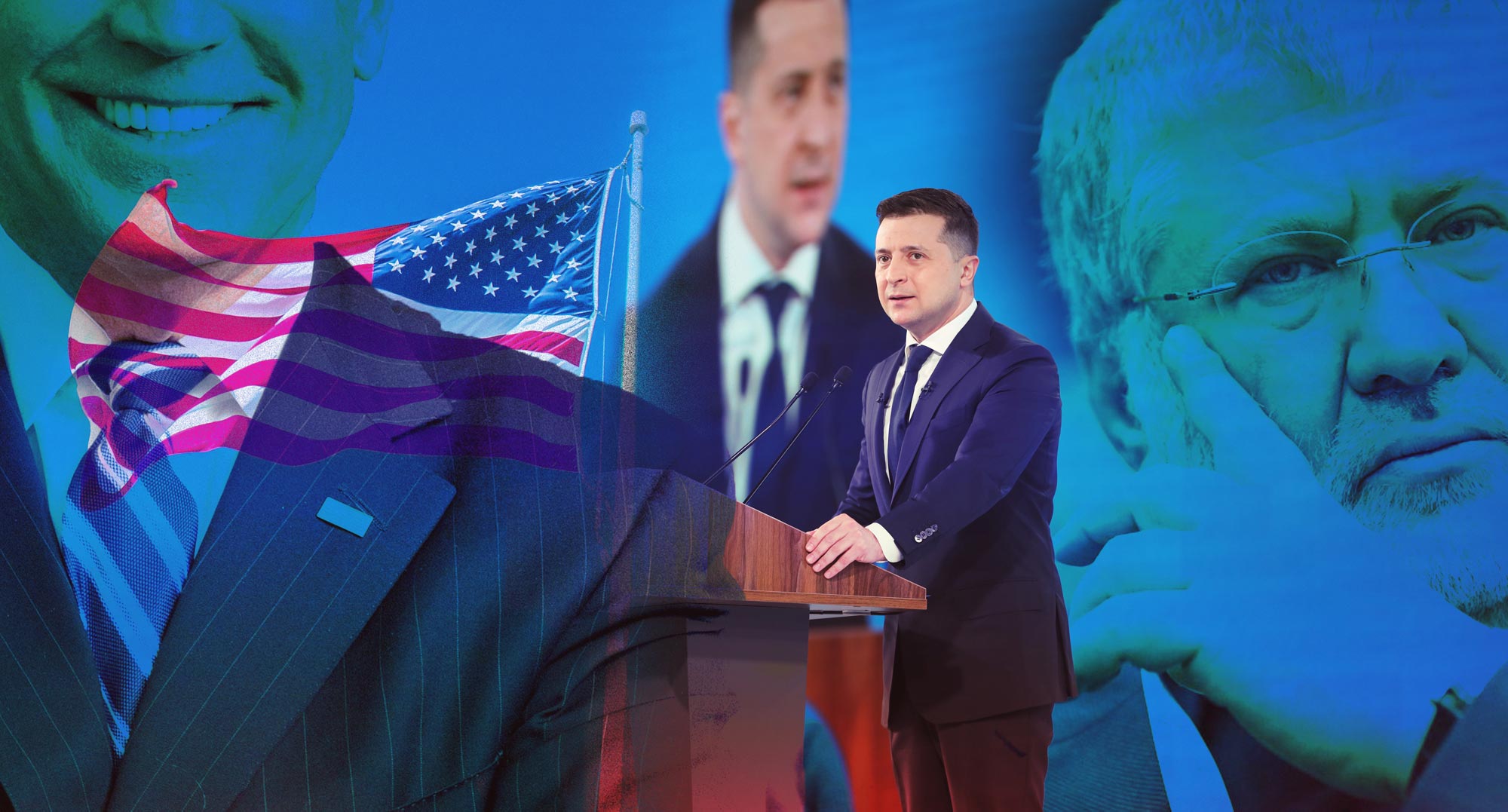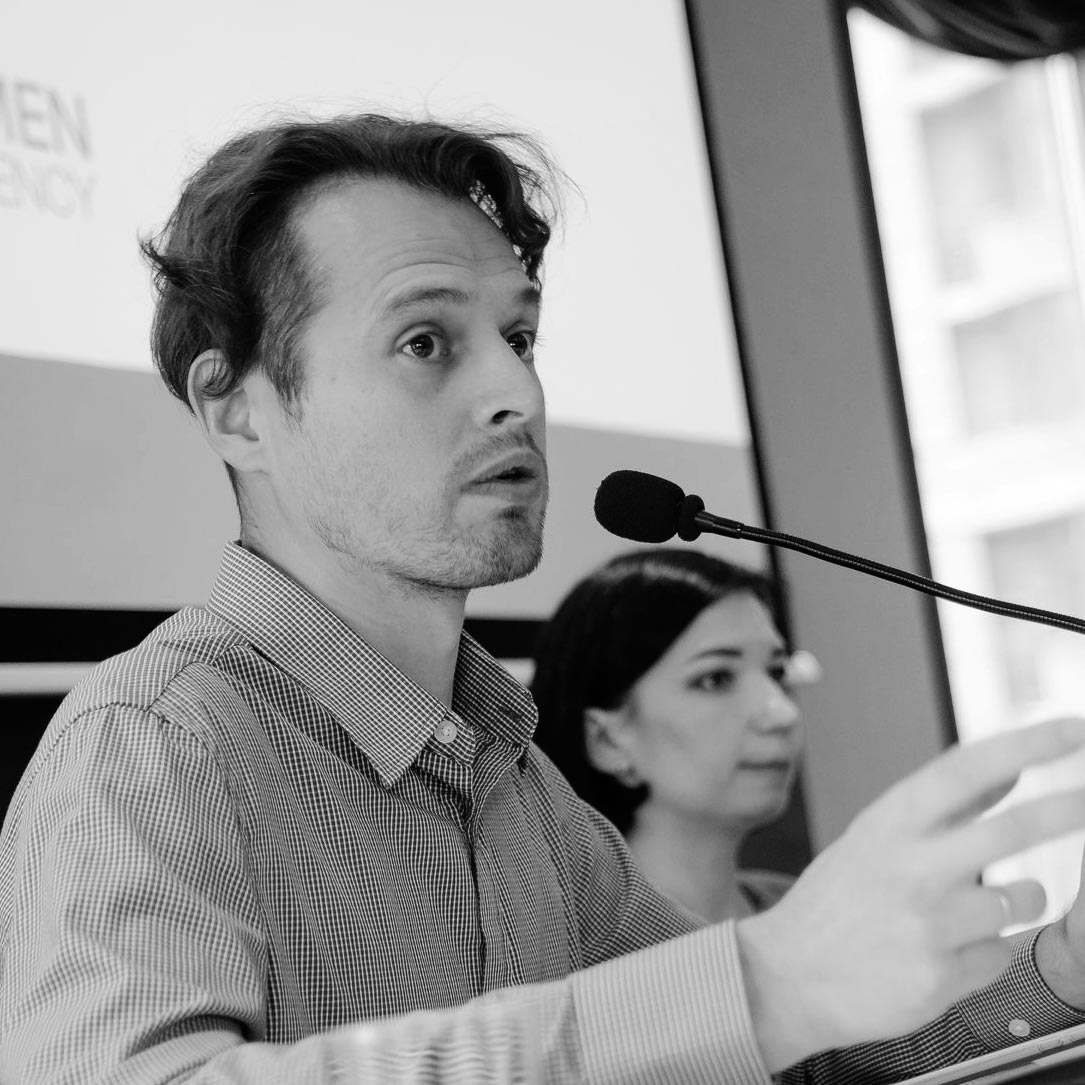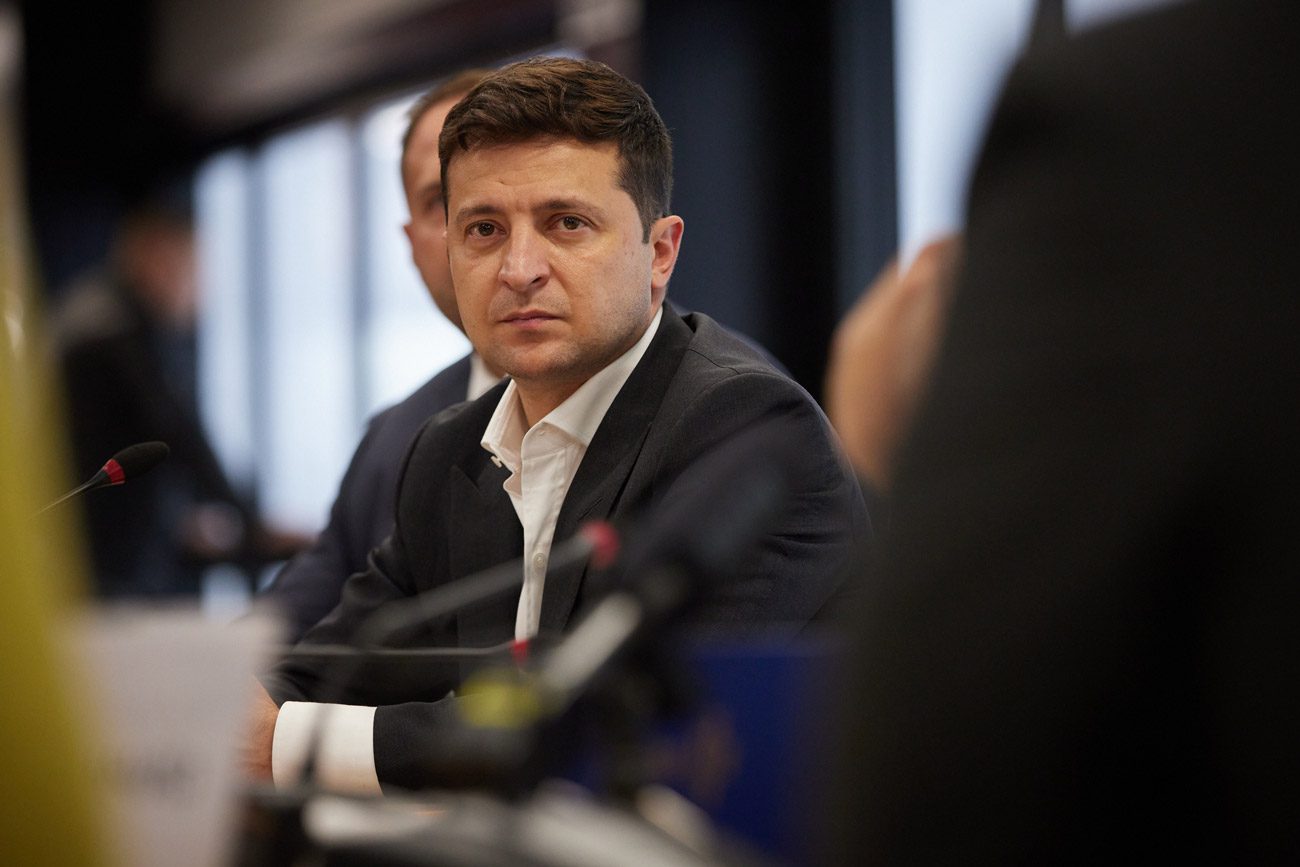“Significant Corruption”: What Sanctions Against Ihor Kolomoisky Tell Us About The U.S. and Ukraine

During the four years of the Donald Trump presidency in the United States, the U.S. effectively – and with lasting consequences – made a joke of the country’s reputation as an anti-corruption powerhouse. Its anti-graft credentials turned into yet another piece of 21st century hypocrisy, as Trump’s lackeys and fixers flew around the world to nakedly trade political favors for personal bribes. If Trump’s successor, Joe Biden, wants to fix that image – it’s going to take some strong signals, a lot of work, and time. Zaborona editor Romeo Kokriatski dives into the most intriguing part of the relationship between the U.S. and Ukraine.
Can America restore its reputation, and can that redemption ever be bought in Ukraine – a country, in many ways, at the center of not only its own corruption scandals, but those that personally involve these two U.S. presidents?
This question has taken on new urgency as foreign policy apparatchiks and anti-corruption crusaders in Kyiv and Washington have begun to dissect some of the latest moves both governments have made in order to begin repairing the frayed bilateral relationship, and display a renewed commitment to anti-corruption efforts.
The largest move, though not the only, has been the sanctioning of Ukraine’s infamous oligarch and former Dnipro region governor, Ihor Kolomoisky, by the U.S. State Department. In a strongly worded statement released by Secretary of State Anthony Blinken, the United States acknowledges Kolomoisky’s ‘involvement in significant corruption’ and has barred the oligarch, and his immediate family, from entrance to the U.S. This isn’t the first move the federal government has taken against the oligarch, who owns a wide range of businesses in Ukraine, including Ukraine’s premier international air carrier and one of its most popular TV channels. It was this TV channel, 1+1, that had broadcasted Ukrainian president Volodymyr Zelenskyy’s comedy program for years, and the channel’s positive coverage of Zelenskyy was arguably one of the largest boosts he received during his campaign, indicating that at least at that point, relations between the two men were genial.
Sanctions here and sanctions there
The U.S. Department of Justice has been after the oligarch’s funds since at least last August, when it was revealed that the oligarch owned a wide range of real estate holdings in the United States. They have alleged that the properties were bought, at least in part, with funds appropriated from a $5.5 billion dollar embezzlement scheme involving Privatbank, Ukraine’s largest bank and formerly the cornerstone of Kolomoisky’s business empire until the fraud was revealed. The fraud prompted the Ukrainian government to step in and nationalize the entity. By December, a number of his properties in the U.S. had been seized, with the Department of Justice explicitly citing the suspicion that Kolomoisky was using these assets to ‘further launder the misappropriated funds and invest them’.
But aside from on-going criminal investigations, Ukrainians have been waiting for more explicit acknowledgement from president Biden, especially given that Biden, while vice-president under Barack Obama, served as the Obama administration’s point-man to the country. Part of the fraudulent corruption allegations put forward by Trump and his associates, including former New York mayor Rudy Giuliani, involved Biden’s prior actions in Ukrainian domestic politics when the then-vice-president pressed for the sacking of a former Ukrainian top prosecutor.
Yet Biden has so far proved to be recitient to address Ukraine directly. According to an anonymous former U.S. official quoted by Politico, this may be due partially to Zelenskyy’s seeming weakness in confronting Ukrainian oligarchs – especially pro-Russian ones. But that may not go over well on Bankova street, where Zelenskyy has recently sanctioned arguably one of the most prominent pro-Russian oligarchs, Viktor Medvechuk, a media mogul and famously, godfather to one of Russian president Vladimir Putin’s daughters.
Dr. Ivan Gomza, head of the Public Policy and Governance Department at the Kyiv School of Economics, believes that there’s little chance that Biden will hold Ukraine off indefinitely, however. “Given the political biographies of both Joe Biden and Anthony Blinken, Ukraine could hardly be put on the back burner,” he commented, noting that Zelenskyy is engaging in risky domestic political maneuvering that may not pay off in Washington.

Dr. Ivan Gomza
“First steps regarding politics in Yemen, China, and Russia suggest Biden is serious about improving the world “by the power of U.S. example,” added Gomza.
Naked challenge
President Zelenskyy, for his part, appears to acknowledge the renewed U.S. push for greater anti-corruption reforms, especially de-oligarchization. In a statement released by the Ukrainian president, Zelenskyy mentioned Kolomoisky by name, listing his name alongside other politically-active Ukrainian oligarchs in what could be perceived as a warning: “One thing is important – are you ready to work legally and transparently or do you want to continue to create monopolies, control the media, influence deputies and other civil servants? The first is welcome. The second ends.”
On the surface, this naked challenge to oligarch dominance may be exactly what the U.S. needs in order to be reassured of Zelenskyy’s anti-corruption intentions – however, questions remain whether this alone will be enough to convince Washington of Zelenskyy’s sincerity. And at home, Zelenskyy has yet to address the numerous corruption scandals involving his own chief-of-staff and ne’er-do-wells within his own party. Moving forward, policymakers and anti-corruption activists will have to grapple with the possibility that any initiatives taken may be reversed in four years, or be dragged into U.S. domestic politics once more.

Photo: president.gov.ua
Both countries have a ways to go to reassert the heady pro-reform atmosphere that permeated Ukraine following the Euromaidan Revolution, and later (in a much more limited format), the election of Volodymyr Zelenskyy. Many reformers in the government have been hounded out of public life, while key anti-corruption institutions, such as the National Anti-Corruption Bureau of Ukraine, are under fire by both judges who themselves are suspected of corruption, and Zelenskyy himself, who has outwardly promised to maintain NABU’s independence while supporting a bill that would “effectively put it under the control of the executive,” according to Gomza.
At the moment, however, U.S.-Ukrainian anti-corruption relations remain in limbo as the Biden administration cleans house in DC and establishes its own objectives amongst a fractious domestic legislature. Kyiv can foretell that the U.S. is gearing up to introduce a fresh anti-corruption focus into its foreign policy, but may be wary of engaging too much with a country that, despite the copious aid and assistance it has provided in the conflict with Russian forces, has shown that it can also be a font of corruption, instead of the cure.






